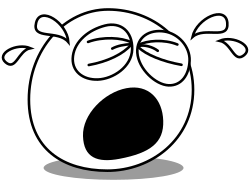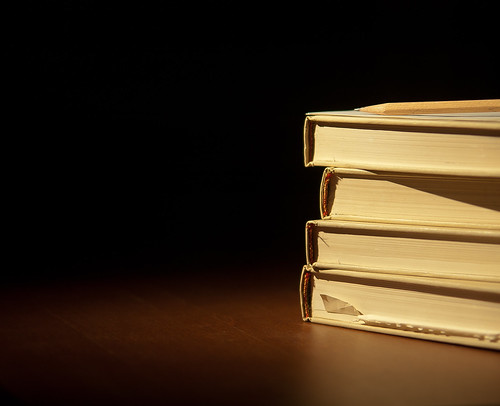Fannie Flagg was a Match Game regular, an actress and a colorful personality, so it makes sense that she would write a book that managed to shine and stand out. She's the mind behind Fried Green Tomatoes, the novel that inspired one of my favorite chick flicks (and I've seen an embarrassing amount of them). But if you pick up the novel expecting to find the Idgie you loved from the film, you're in for a bit of a surprise.
The Book
Flagg published Fried Green Tomatoes at the Whistle Stop Cafe, which is the actual title of the book, in 1987. Like the movie, it focuses on two different time periods in one woman's life. In the novel's present, an elderly woman in a nursing home named Ninny Threadgoode becomes friends with a middle-aged stranger named Evelyn Couch. During their once-weekly visits, Ninny tells Evelyn a story that happened many years ago.
Her story revolves around the Whistle Stop Cafe, which is found in Whistle Stop, Alabama. Idgie and her friend Ruth ran the cafe, which was known for its fried green tomatoes. The story took place a long time ago, around the 1920s, but hearing it inspires Evelyn Couch to make positive changes in her own life. She's enthralled with Idgie's bravery, and it compels her to shed some of her own cowardly ways.
But the novel doesn't tell the same tight, cohesive stories you'll see unfold in the film version. The narration is confused at times, and the reader must determine where and when they are based on the descriptions that open up each chapter. This is helped along somewhat by the Weems Weekly, Whistle Stop's local paper. Events are revealed out of order and in no real pattern.
Ninny was taken in as a child by the Threadgoode family and she married Cleo, one of the brothers. But her true first love was dashing Buddy Threadgoode, who was very close with his little sister Idgie (short for Imogene). She's a tomboy, and the apple of her brother's eye. But things change when Buddy is hit by a train and killed. She takes to living away from the house and becomes even more boyish. Years pass in this fashion, and then Ruth Jamison arrives.
Ruth has also come to live with the family because she's teaching at the nearby Bible School. Idgie falls in love with her and begins to spend more time at home, but Ruth has not come to Alabama to stay. She's promised to marry a man, and moves to Georgia to be his wife at the end of the summer. Idgie leaves home again, and once more the years start to roll on by.
A Bible page torn from the Book of Ruth arrives at the Threadgoode home. Idgie understands at once that it's from Ruth, and that she's being abused by her husband. How she infers that from Ruth 1:16 one never knows, but then I have trouble understanding much of the Bible as it is so I'll let it go. Idgie brings Big George, a servant in the Threadgoode home, and her two surviving brothers to take Ruth away from her husband Frank Bennett.
Ruth's carrying his child, so Idgie's father gives her money to start her own business so she can care for Ruth. Idgie builds the Whistlestop Cafe. Sipsey, Big George and Onzell begin working there with her. Together, the two women raise Buddy Junior, later nicknamed "Stump" after a train accident.
Regulars come to the cafe, people like Smokey Lonesome. He's a Depression-era hobo who rides the rails, and the cafe gains some notoriety among this set. Idgie and Ruth ruffle a few feathers when they even start serving blacks out the back door. Frank Bennett has disappeared, and detectives come by to ask Ruth if she has any information about it.
Hearing about Idgie's incorrigible ways inspires Evelyn to create an alter-ego named Towanda -- she's sort of like Sasha Fierce. It makes Evelyn confident, self-possessed, bold and unafraid.
And in the past, the cafe carries on. The Depression comes and goes, as does World War II. Buddy Junior becomes a man, and the town grows quiet around them. Ruth dies of cancer in the 50s, and the railroad was already out of fashion by then. Idgie is later arrested, along with Big George, for Frank Bennett's murder. His car was found at the bottom of a lake outside town, you see. But the case is dismissed after the town minister lies for Idgie on the stand. She once helped his son (and most of the people in town).
We learn later that Sipsey killed him with an iron skillet when Buddy Junior was still a baby. The detectives ate Bennett's body when they came to investigate, meat that was barbequed by Big George. They loved it.
While away at a weight loss spa, Evelyn learns that Ninny Threadgoode has died in the nursing home. It's a sad ending, and a different one from what you'll see when you view the film. In fact, a whole lot of things are different on film.
The Film
The movie Fried Green Tomatoes was released in 1991, and starred Mary Stuart Masterson as Idgie. Mary-Louise Parker played Ruth. Jessica Tandy became Ninny onscreen, and Kathy Bates was a perfect Evelyn.
The meeting between the two new friends is much the same on film...and the story begins to deviate almost immediately from there. We focus right away on young Idgie, and meet Ruth early. In this version, it's Ruth who is in love with Buddy and she has moved into the home because she will marry him. Both girls are present the night Buddy dies, and both are devastated.
Ruth is asked to come back to the home years later, once Idgie has slipped so far out of civilized society her parents become concerned. Though at first reluctant, Idgie soon accepts Ruth's friendship and returns it in kind. But Ruth still leaves Whistle Stop to marry Frank Bennett, and Idgie is left bereft because she misses her best, and arguably only, friend.
Idgie goes to visit Ruth under her own steam and all alone, and sees evidence that Frank has been beating up on her. Idgie pretty much drags her BFF back to Whistle Stop, and the events of opening the cafe take place just the way they ought.
The rest of the film pretty much carries out as the book does, with a few very glaring omissions. Ninny goes to live with Evelyn at the end, and it's revealed that Ninny is actually Idgie.
What Got Adapted?
The few changes made to Fried Green Tomatoes are probably the most important, because they manage to change the entire tone of the book. You see, Idgie and Ruth are lesbians. Such is not the case on film, where the relationship is made into more a sisterish or best friend pairing. If you don't know they're supposed to be lesbians, you probably won't see it anywhere on the film.
Ninny lives on film, because her death really does make the whole thing so sad. In the movie, Ruth lives to testify at Frank's trial. In the book, she never lives to see Idgie arrested. On film, Ninny and Idgie are the same person. This is not the case in the book. They talk to each other and they are certainly two different people; Ninny was Idgie's sister-in-law.
The book is largely about aging. It's an extremely important element that we meet a childhood and adolescent Idgie, a twenty-something Idgie and Ruth, middle-aged Evelyn and elderly Ninny. All represent something different. The town ages, too, as does Idgie's childhood home. The south becomes older, a little colder, and changes come to take away some of it charm.
It really feels like Whistle Stop dies with Ninny at the end of the book. Racism is a strong theme of the story, but only briefly touched on film by comparison. Death is another central theme, and avoided on film wherever possible.
It becomes a different kind of story, but both versions of Fried Green Tomatoes are great. It's still one of my favorites. If you don't read it and watch it, you'll be missing out.












































